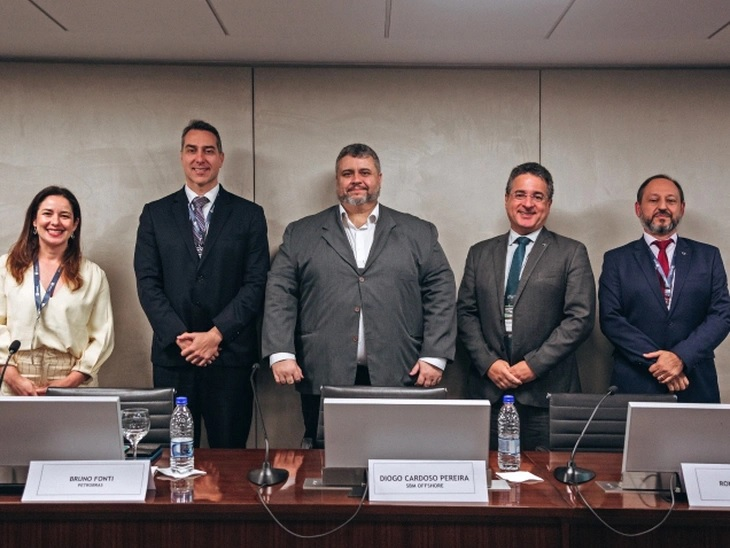
 Offshore
Offshore
Brasília hosts workshop on offshore asset decommissioning and sustainable recycling organized by ONIP
T&B Petroleum/TN Petróleo
With the support of the Federation of Industries of the State of Rio de Janeiro (Firjan), the National Confederation of Industry (CNI), and the law firm Kincaid / Mendes Vianna Advogados Associados, the National Organization of the Petroleum Industry (ONIP) held a workshop on decommissioning in Brasília yesterday (Nov 5), in partnership with the Brazilian Bar Association – Rio de Janeiro Section (OAB-RJ).
To fully leverage its competitive advantages — a topic widely discussed during the event — Brazil must become a signatory to the Hong Kong Convention, which sets requirements for the safe and environmentally sound recycling of ships. Currently, 24 countries have signed the convention, including nations with high demand and well-developed infrastructure to serve this market.
This was one of the key messages highlighted at the event, which brought together around 100 participants from various government bodies, market players — both clients and potential suppliers — as well as representatives from academia and industry associations.
 “ONIP is committed to strengthening collaboration with its partners and working in a more integrated way as a path to develop this market, based on international best practices and, initially, anchored in local needs,” said the organization’s Executive Director, Marta Franco Lahtermaher.
“ONIP is committed to strengthening collaboration with its partners and working in a more integrated way as a path to develop this market, based on international best practices and, initially, anchored in local needs,” said the organization’s Executive Director, Marta Franco Lahtermaher.
The workshop revealed opportunities for the creation of a new regulated market with significant potential for Brazil. Fausto Vieira, Technical Advisor at the Subsecretariat of Customs Administration (SUANA) of the Brazilian Federal Revenue Service, described decommissioning as “a strategic topic for the Federal Revenue Service, supported by three main pillars: legal compliance, transparency, and predictability.”
Meanwhile, Itagyba Alvarenga, General Coordinator of Environmental Licensing at the Brazilian Institute of Environment and Renewable Natural Resources (Ibama), warned: “Brazil cannot afford to be less capable than other countries in this market.”
It is estimated that more than 15,000 vessels worldwide are mapped for decommissioning and/or recycling in the coming years. Among them, approximately 6,000 are offshore platforms nearing the end of their production cycles — around 3,000 of which are expected to be decommissioned by 2040, representing an estimated investment of US$100 billion.
Brazil accounts for about 9% of that total investment and currently has 164 platforms in operation — 53 of which are over 25 years old, 35 between 15 and 24 years old, and 77 are floating units. Thirteen of these are expected to be removed from their current locations by 2028.
Beyond the sheer number of assets, participants highlighted the increasing size and complexity of equipment, as well as the growing volume of steel used in newer platforms — factors that underscore the potential for sustainable recycling and reuse through a circular economy approach.
To enable this process, the range of services involved in asset preparation is extensive and requires coordination among multiple agencies, including the National Agency for Petroleum, Natural Gas and Biofuels (ANP), the Brazilian Navy, Ibama, and the National Nuclear Safety Authority (ANSN), as well as capacity building for teams from the Federal Court of Accounts (TCU) and the Federal Revenue Service.
The discussions also addressed challenges related to diagnostics, planning, and strategic decision-making — including attention to workers at decommissioned units, allocation of resources, development of local suppliers, investments in adapting or building reception infrastructure, and compliance with established requirements.
Among the topics covered were the special customs regime Repetro and the need for its evolution to accommodate Brazil’s potential; progress in the processing and approval of pending legislative proposals; and the revision and publication of regulations related to NORM (Mining Regulatory Standards), among others.
Contact us